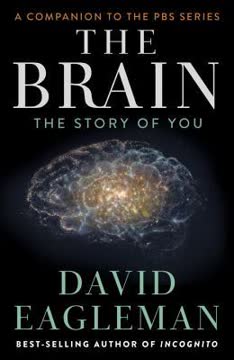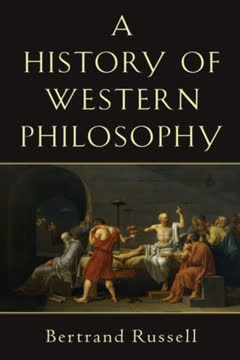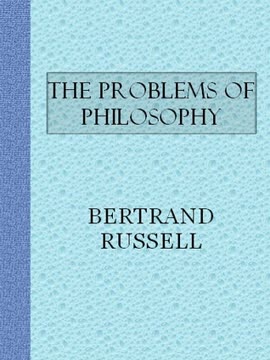Key Takeaways
1. The Principle of Growth: Fostering Individual and Collective Vitality
The growth and vitality of individuals and communities is to be promoted as far as possible.
Vital energy is crucial for both individual and societal progress. However, this energy must be channeled constructively, avoiding oppression or exploitation of others. The challenge lies in fostering growth that is mutually beneficial, rather than competitive or destructive.
Integrating individual lives with consistent creative purposes or unconscious directions is essential. This integration often faces obstacles in modern society, where professional demands can stifle personal growth and authenticity. The key is to preserve inward freedom and allow individuals to pursue their genuine impulses, even if they don't conform to conventional expectations.
Community integration requires aligning diverse creative impulses towards common goals. This is challenging but necessary to prevent vital energies from becoming destructive forces, as seen in extreme nationalism or religious fundamentalism.
2. Balancing Individual Liberty with Societal Progress
The growth of one individual or one community is to be as little as possible at the expense of another.
Reverence for others is fundamental to balancing individual and collective growth. This principle extends beyond personal interactions to shape political and social structures, advocating for liberty while recognizing its limitations as a purely negative principle.
Harmonizing individual and collective interests requires:
- Fostering personal growth without impeding others
- Creating social structures that support diverse individual pursuits
- Developing a sense of shared purpose without sacrificing individuality
International cooperation is crucial for sustainable progress. Purely national movements often fail due to external threats, highlighting the need for global collaboration in addressing major challenges and reforms.
3. The Interplay of Instinct, Mind, and Spirit in Human Development
Instinct, mind, and spirit are all essential to a full life; each has its own excellence and its own corruption.
Instinct provides vitality and connects individuals to their biological and social roots. It's the source of powerful emotions and drives but can be narrow and selfish if unchecked.
Mind offers critical thinking and the ability to transcend immediate impulses. However, an overly dominant mind can lead to cynicism and detachment from life's vital forces.
Spirit brings universality and a sense of connection to something greater than oneself. It can infuse instinct and mind with deeper meaning and purpose, but when corrupted, may lead to dogmatism or escapism.
The ideal is to achieve a harmonious balance where:
- Instinct provides energy and grounding
- Mind offers direction and discernment
- Spirit provides meaning and transcendence
This balance allows for a rich, fulfilling life that contributes positively to both individual and societal well-being.
4. Rethinking Marriage and Population in the Modern World
The present state of the law, of public opinion, and of our economic system is tending to degrade the quality of the race, by making the worst half of the population the parents of more than half of the next generation.
Current marriage and population dynamics are problematic, leading to undesirable demographic trends. The most educated and capable individuals often have fewer children, while those less equipped for parenthood tend to have larger families.
Proposed solutions include:
- Removing economic barriers to parenthood for capable individuals
- Providing state support for child-rearing, contingent on parental fitness
- Reconsidering traditional notions of marriage and family structure
These changes aim to:
- Improve the overall quality of the population
- Allow for more freedom in personal relationships
- Ensure better care and opportunities for children
However, implementing such changes requires overcoming significant social, economic, and political hurdles, as well as deeply ingrained cultural norms.
5. The Flaws of Current Educational Systems and the Need for Reform
If the object were to make pupils think, rather than to make them accept certain conclusions, education would be conducted quite differently: there would be less rapidity of instruction and more discussion, more occasions when pupils are encouraged to express themselves, more attempt to make education concern itself with matters in which the pupils feel some interest.
Current education systems often prioritize conformity and the acceptance of established ideas over critical thinking and personal growth. This approach stifles creativity and fails to prepare students for the complexities of modern life.
A reformed education system should:
- Encourage independent thought and questioning
- Foster creativity and individual interests
- Develop skills for critical analysis and problem-solving
- Promote emotional and social intelligence alongside academic knowledge
The goal is to create individuals who are not just knowledgeable, but also adaptable, creative, and capable of contributing meaningfully to society. This requires a shift from rote learning to more interactive, engaging, and personalized educational approaches.
6. Religion's Role in Society: Beyond Dogma and Institutions
If a religious view of life and the world is ever to reconquer the thoughts and feelings of free-minded men and women, much that we are accustomed to associate with religion will have to be discarded.
Traditional religious institutions often struggle to remain relevant in the face of scientific progress and changing social norms. However, the spiritual needs that religion addresses remain important for many individuals and societies.
A renewed approach to spirituality could:
- Focus on ethical principles and personal growth rather than rigid dogma
- Embrace scientific understanding while exploring existential questions
- Foster community and shared purpose without exclusivity or intolerance
This reimagined spirituality would aim to provide the benefits of religious experience – such as meaning, community, and ethical guidance – without the drawbacks of traditional religious institutions, like dogmatism and social division.
7. Envisioning a Better Future: The Power of Thought and Action
The power of thought, in the long run, is greater than any other human power. Those who have the ability to think, and the imagination to think in accordance with men's needs, are likely to achieve the good they aim at sooner or later, though probably not while they are still alive.
Transformative ideas, though they may seem impractical or idealistic at first, have the power to reshape societies over time. Historical examples like religious tolerance, democracy, and women's rights demonstrate how ideas can evolve from fringe concepts to foundational societal principles.
To effect positive change:
- Develop clear visions of desirable societal improvements
- Cultivate the courage to think independently and challenge norms
- Balance idealism with practical steps towards implementation
- Collaborate internationally to address global challenges
The process of change is often slow and may not be fully realized within a single lifetime. However, by articulating and pursuing visions of a better world, individuals can set in motion forces that continue to shape society long after their own time.
Last updated:
FAQ
What's "Why Men Fight" about?
- Exploration of Conflict: "Why Men Fight" by Bertrand Russell examines the underlying causes of conflict, both personal and political, and proposes ways to promote creativity and diminish possessive impulses.
- Political Philosophy: The book is a significant contribution to political philosophy, challenging the outmoded liberalism of the 19th century and suggesting a new theory based on impulse rather than conscious purpose.
- Social Reconstruction: Russell discusses the need for fundamental changes in society's economic and social structures to prevent decay and promote growth.
Why should I read "Why Men Fight"?
- Insightful Analysis: The book provides a profound analysis of the psychological and social roots of aggression and conflict, offering a unique perspective on human behavior.
- Relevance to Modern Issues: Although written during World War I, the themes of war, peace, and social justice remain relevant to contemporary global issues.
- Philosophical Depth: Russell's work is a blend of philosophy, sociology, and political theory, making it a rich resource for understanding the complexities of human society.
What are the key takeaways of "Why Men Fight"?
- Creative vs. Possessive Impulses: Russell emphasizes the importance of fostering creative impulses over possessive ones to build a healthier society.
- Role of the State: The book critiques the excessive power of the state and its role in promoting war and suppressing individual freedom.
- Education and Growth: Russell advocates for an education system that encourages independent thought and personal growth rather than conformity and obedience.
What are the best quotes from "Why Men Fight" and what do they mean?
- "The supreme principle...": This quote highlights Russell's belief that promoting creativity and reducing possessive desires should be the guiding principle in both politics and private life.
- "Only passion can control passion...": Russell argues that reason alone is insufficient to prevent war; instead, a positive life of impulses and passions opposed to war is necessary.
- "The civilized world has need of fundamental change...": This quote underscores the urgent need for societal transformation to prevent decay and promote a vibrant, creative society.
How does Bertrand Russell define the principle of growth in "Why Men Fight"?
- Instinctive Urgency: Russell describes growth as an instinctive urgency leading individuals in a certain direction, akin to how trees seek light.
- Unimpeded Development: He argues that social institutions should facilitate free and vigorous growth rather than impose a fixed pattern on individuals.
- Central Principle: Growth is seen as a central principle that determines the type of excellence each person is capable of achieving.
What is Bertrand Russell's view on the state in "Why Men Fight"?
- Critique of State Power: Russell criticizes the state's excessive power, which he believes promotes war and suppresses individual freedom.
- Role of the State: He argues that the state's role should be limited to maintaining order and preventing injustice, rather than controlling every aspect of life.
- Promotion of Creativity: The state should encourage creativity and personal growth, rather than stifling them through rigid control and authority.
How does "Why Men Fight" address the issue of war?
- War as an Institution: Russell views war as a permanent institution in free communities, driven by impulses rather than rational calculations.
- Impulses Behind War: He identifies the impulses of aggression and resistance to aggression as key drivers of war, which are often masked by rational justifications.
- Path to Peace: Russell suggests that peace can only be achieved by redirecting the impulses that lead to war towards constructive and creative ends.
What does Bertrand Russell say about property in "Why Men Fight"?
- Critique of Private Property: Russell critiques the institution of private property, arguing that it is based on historical injustices and perpetuates inequality.
- Economic Justice: He advocates for a more just distribution of resources, where the state plays a role in ensuring fairness and preventing monopolies.
- Creative vs. Possessive: Russell emphasizes the need to prioritize creative impulses over possessive ones to foster a more equitable and vibrant society.
How does "Why Men Fight" approach the topic of education?
- Education for Growth: Russell argues for an education system that promotes independent thought and personal growth rather than conformity and obedience.
- Role of Reverence: He emphasizes the importance of reverence in education, where teachers respect the individuality and potential of each child.
- Critique of Current Systems: The book criticizes existing educational systems for their focus on producing belief rather than fostering critical thinking and creativity.
What are Bertrand Russell's views on marriage and the population question in "Why Men Fight"?
- Marriage as a Social Institution: Russell examines marriage as a political institution, critiquing its basis in outdated religious and moral codes.
- Population Concerns: He addresses the selective birth-rate issue, where the best elements of the population fail to reproduce, leading to societal decline.
- Proposed Reforms: Russell suggests reforms to remove economic burdens from parents and promote freedom in personal relationships, while ensuring the well-being of children.
How does "Why Men Fight" discuss religion and the churches?
- Decay of Dogmatic Religion: Russell explores the decline of dogmatic religion due to new knowledge and the opposition of churches to political progress.
- Religion and Morality: He calls for a new morality of initiative and hope, rather than submission and fear, to inspire a positive vision of human life.
- Role of the Spirit: The book emphasizes the importance of the life of the spirit, which transcends instinct and mind, fostering a sense of unity and purpose.
What practical steps does Bertrand Russell suggest in "Why Men Fight"?
- Promoting Creativity: Russell advocates for promoting creative impulses in both politics and private life, reducing the focus on possession and competition.
- International Cooperation: He emphasizes the need for international cooperation to overcome nationalistic aggression and promote global peace.
- Long-term Change: Russell encourages patience and perseverance, recognizing that meaningful change requires a shift in societal values and long-term efforts.
Review Summary
Why Men Fight receives mixed reviews, with praise for Russell's insightful analysis of societal structures and human impulses. Readers appreciate his visionary ideas on education, women's rights, and pacifism. Some find the book challenging but thought-provoking, while others criticize outdated views on race and eugenics. Many commend Russell's clear writing style and logical arguments. Overall, reviewers value the book's historical context and its relevance to contemporary issues, despite some dated concepts.
Similar Books
Download PDF
Download EPUB
.epub digital book format is ideal for reading ebooks on phones, tablets, and e-readers.




















